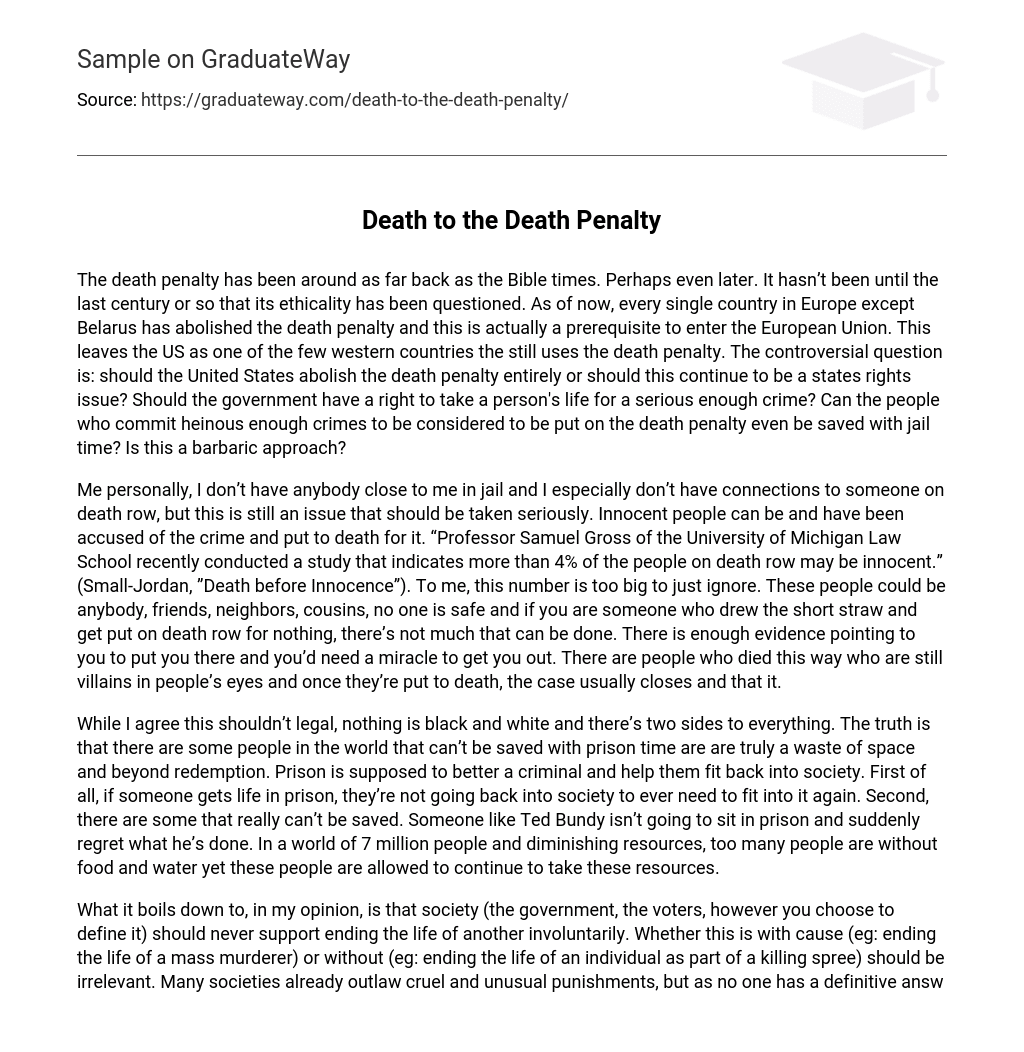The death penalty has been around as far back as the Bible times. Perhaps even later. It hasn’t been until the last century or so that its ethicality has been questioned. As of now, every single country in Europe except Belarus has abolished the death penalty and this is actually a prerequisite to enter the European Union. This leaves the US as one of the few western countries the still uses the death penalty. The controversial question is: should the United States abolish the death penalty entirely or should this continue to be a states rights issue? Should the government have a right to take a person’s life for a serious enough crime? Can the people who commit heinous enough crimes to be considered to be put on the death penalty even be saved with jail time? Is this a barbaric approach?
Me personally, I don’t have anybody close to me in jail and I especially don’t have connections to someone on death row, but this is still an issue that should be taken seriously. Innocent people can be and have been accused of the crime and put to death for it. “Professor Samuel Gross of the University of Michigan Law School recently conducted a study that indicates more than 4% of the people on death row may be innocent.” (Small-Jordan, ”Death before Innocence”). To me, this number is too big to just ignore. These people could be anybody, friends, neighbors, cousins, no one is safe and if you are someone who drew the short straw and get put on death row for nothing, there’s not much that can be done. There is enough evidence pointing to you to put you there and you’d need a miracle to get you out. There are people who died this way who are still villains in people’s eyes and once they’re put to death, the case usually closes and that it.
While I agree this shouldn’t legal, nothing is black and white and there’s two sides to everything. The truth is that there are some people in the world that can’t be saved with prison time are are truly a waste of space and beyond redemption. Prison is supposed to better a criminal and help them fit back into society. First of all, if someone gets life in prison, they’re not going back into society to ever need to fit into it again. Second, there are some that really can’t be saved. Someone like Ted Bundy isn’t going to sit in prison and suddenly regret what he’s done. In a world of 7 million people and diminishing resources, too many people are without food and water yet these people are allowed to continue to take these resources.
What it boils down to, in my opinion, is that society (the government, the voters, however you choose to define it) should never support ending the life of another involuntarily. Whether this is with cause (eg: ending the life of a mass murderer) or without (eg: ending the life of an individual as part of a killing spree) should be irrelevant. Many societies already outlaw cruel and unusual punishments, but as no one has a definitive answer on what happens after death (if anything), we can’t be sure that the death penalty is humane and reasonable. However horrific a thing a person may have done, what guarantee do we have that the punishment we choose to invoke is proportional? By killing someone, you are fundamentally saying that society has the right to determine the value of an individual’s life, which I strongly disagree with.





